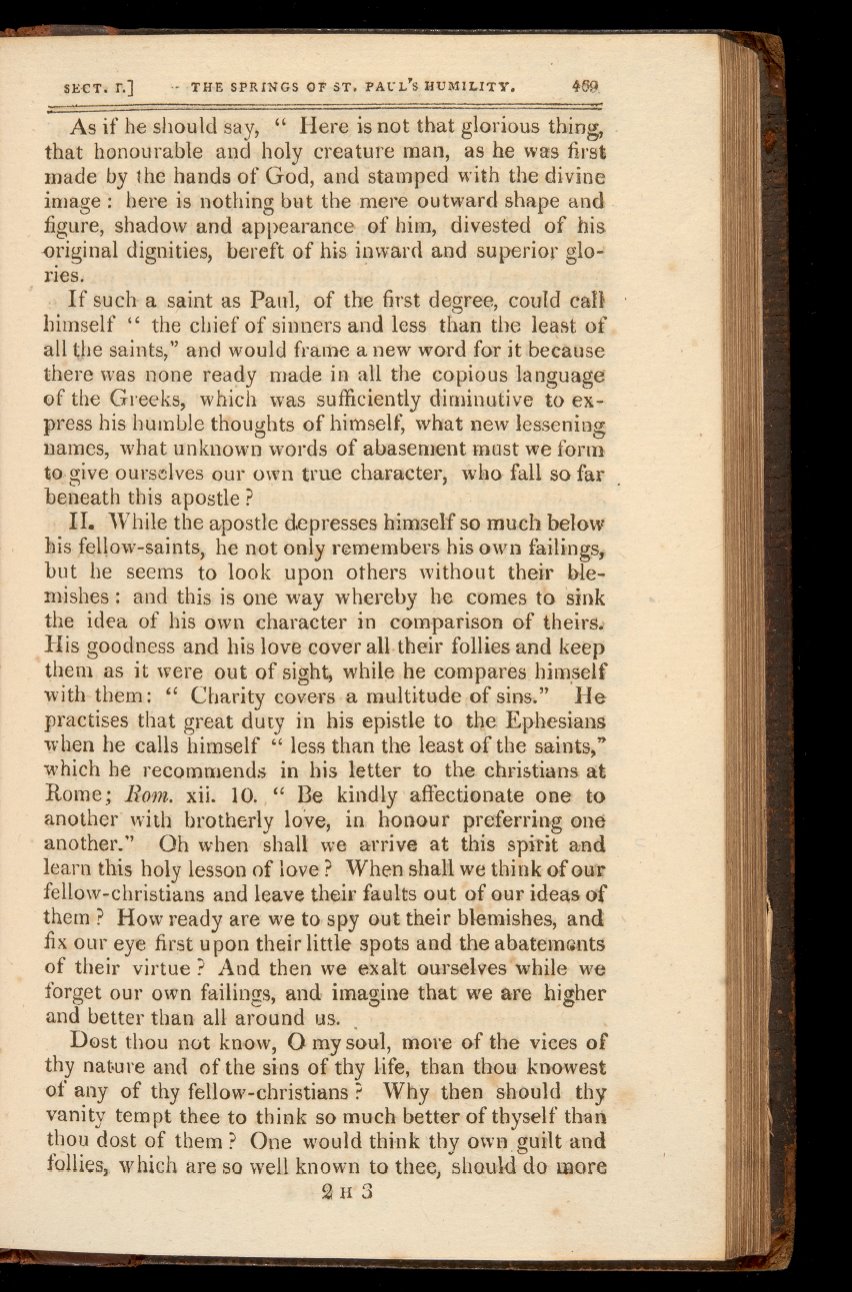

SECT.
T.]
-
THE SPRINGS
OF ST. PAUL'S
HUMILITY.
489.
As
if
he
should
say,
" Here
is
not that
glorious thing,
that
honourable
and holy
creature
man, as he
was
first
made
by
the hands
of
God, and stamped
with the divine
image
:
here
is
nothing
but
the mere outward shape
and
figure,
shadow
and
appearance of
him,
divested
of
his
original
dignities,
bereft of
his
inward and
superior
glo-
ries.
If
such
a
saint
as
Paul,
of
the
first
degree, could
call
himself
"
the
chief
of
sinners and
less
than the least
of
all the saints," and would frame
a
new word for
it because
there
was
none ready made in
all
the copious language
of
the
Greeks,
which
was sufficiently
diminutive to
ex-
press
his
humble thoughts
of
himself,
what
new
lessening
names,
what unknown words
of
abasement
must
we
form
tó
give
ourselves
our
own
true
character,
who fall
so
far
beneath
this
apostle
?
II.
While the apostle depresses himself
so
much below
his fellow- saints,
he
not
only
remembers
his
own
failings,
.
but
he seems
to look
upon others without their
ble-
mishes
:
and this
is
one
way
whereby
he
comes
to
sink
the
idea of
his own
character
in
comparison
of
theirs.
His
goodness and
his
love cover all
their
follies
and keep
them
as
it
were
out of
sight,
while he
compares
himself
with
them:
"
Charity
covers
a
multitude
of
sins."
He
practises
that great
duty
in
his
epistle to
the
Ephesians
when he calls
himself "
less
than the least
of
the saints,"
which he
recommends
in his
letter
to the christians
at
Rome;
Rom. xii.
10.
"
Be
kindly affectionate
one
to
another
with
brotherly
love, in
honour preferring
one
another." Oh when
shall
we
arrive
at
this
spirit
and
learn this
holy lesson
of
love
?
When shall
we
think
ofour
fellow
-
christians
and leave
their
faults
out of
our
ideas
of
them
?
How ready are
we to spy
out their
blemishes,
and
fix
our
eye
first
upon their little
spots and the
abatements
of
their virtue
?
And then
we
exalt
ourselves while we
forget
our
own failings,
and imagine
that
we
are higher
and
better
than
all
around
us.
Dost
thou
not
know,
O
my
soul,
more
of the
vices
of
thy
nature
and
of
the
sins
of
thy
life,
than
thou knowest
of
any
of
thy fellow
-
christians
?
Why then should
thy
vanity
tempt
thee
to
think
so
much
better of
thyself than
thou dost
of
them
?
One
would
think
thy
own.
guilt
and
follies,.
which are
so
well
known
to thee, should do more
ii3

















